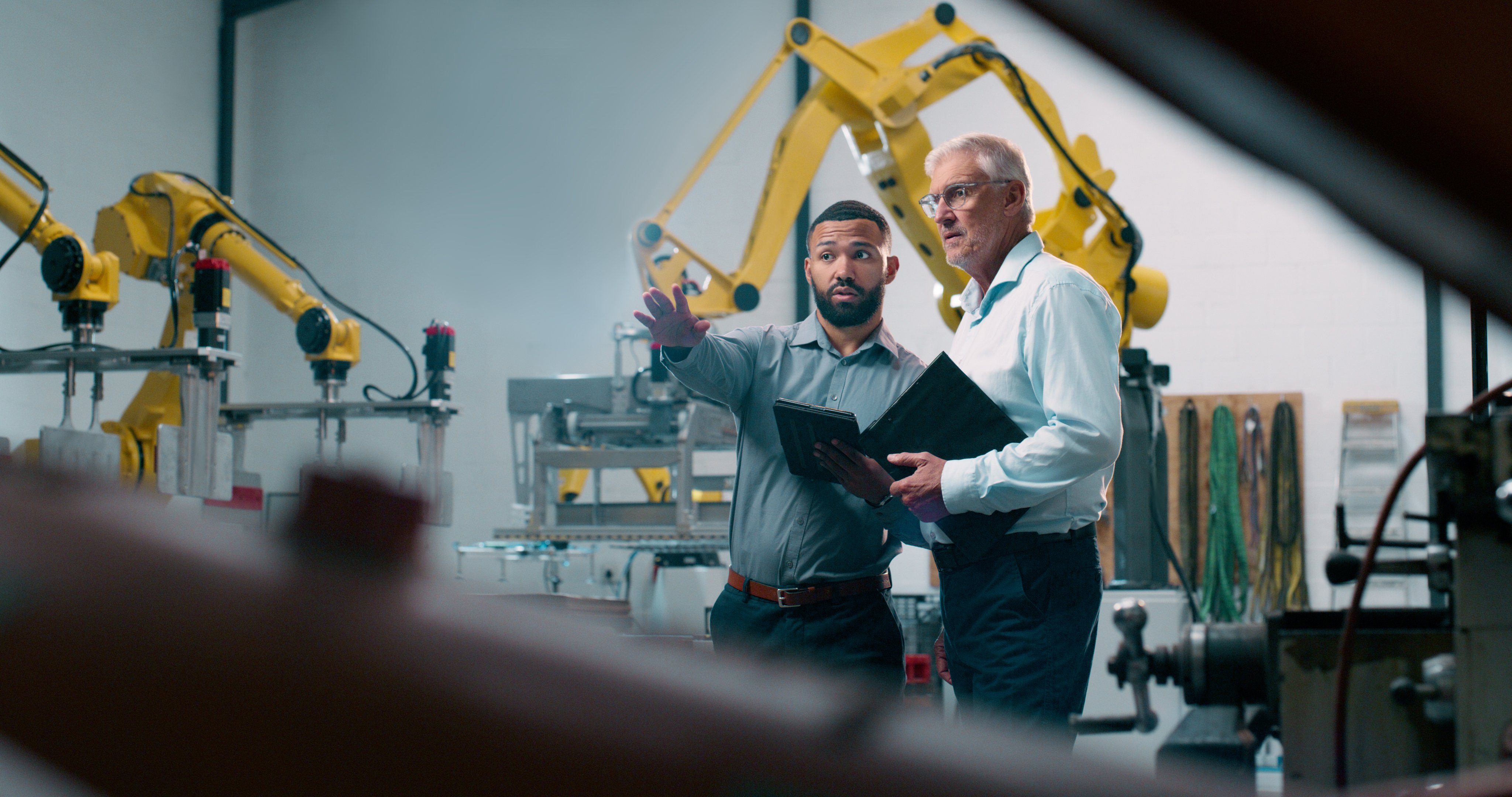
- February 2026 (1)
- January 2026 (2)
- December 2025 (2)
- November 2025 (2)
- October 2025 (3)
- September 2025 (3)
- August 2025 (3)
- July 2025 (2)
- June 2025 (3)
- May 2025 (3)
- April 2025 (3)
- March 2025 (2)
- February 2025 (1)
- December 2024 (2)
- November 2024 (1)
- August 2024 (2)
- June 2024 (3)
- May 2024 (3)
- April 2024 (1)
- March 2024 (3)
- February 2024 (2)
- January 2024 (2)
- December 2023 (1)
- November 2023 (2)
- October 2023 (2)
- September 2023 (1)
- August 2023 (1)
- July 2023 (2)
- June 2023 (3)
- May 2023 (2)
- March 2023 (4)
- January 2023 (2)
- November 2022 (2)
- September 2022 (1)
- August 2022 (2)
- July 2022 (2)
- June 2022 (1)
- May 2022 (1)
- April 2022 (3)
- March 2022 (1)
- February 2022 (3)
- January 2022 (2)
- December 2021 (1)
- November 2021 (1)
- October 2021 (2)
- September 2021 (3)
- August 2021 (1)
- July 2021 (3)
- May 2021 (2)
- April 2021 (2)
- March 2021 (2)
- February 2021 (3)
- January 2021 (3)
- December 2020 (1)
- October 2020 (1)
- August 2020 (1)
- August 2019 (1)
- January 2019 (2)
- September 2018 (5)
- June 2018 (1)
- November 2017 (1)
- September 2017 (1)
- July 2017 (1)
- May 2017 (1)
- January 2017 (1)
- October 2016 (2)
- August 2016 (1)
- July 2016 (1)
- June 2016 (1)
Subscribe by email
The Internet of Things (IoT) is transforming how businesses operate, compete, and grow. From streamlining day-to-day processes to reducing risk and unlocking real-time insights, IoT is helping organizations improve operational efficiency. But its impact doesn’t stop there. For many companies, IoT innovations are opening the door to entirely new business models—ones that create recurring revenue and deliver ongoing value long after the initial sale.
As industries evolve toward subscription-based services and Platform as a Service (PaaS) models, connectivity has become a strategic tool in addition to a technical requirement. Businesses that harness the power of reliable IoT connectivity are positioned to accelerate ROI, expand into new markets, and stay ahead in an increasingly connected world.
In this article, we’ll explore how IoT works, the top ways it can enhance your business, and the key considerations to ensure a successful implementation—from choosing the right connectivity to scaling, managing, and monetizing your devices effectively.
Key Takeaways:
-
IoT enables dramatic operational cost reduction: By automating processes and offering real‑time visibility, connected devices help businesses cut waste, optimize maintenance, and reduce energy or resource consumption.
-
Predictive maintenance and asset/inventory tracking improve uptime & efficiency: IoT sensors detect problems before failures, track assets and stock in real time, and prevent loss. This is key for manufacturing, logistics, retail, and more.
-
IoT data fuels smarter, faster decision‑making: Continuous data streams from devices let companies respond in near real‑time to changing conditions, optimizing delivery routes, maintenance schedules, resource use, or customer service.
-
New business and monetization models emerge (subscription / PaaS / recurring revenue): Connectivity lets companies shift from one‑time hardware sales to ongoing services: managed devices, recurring billing, updates — unlocking long-term customer relationships and predictable revenue streams.
-
Enhanced resilience and business continuity via dependable connectivity and failover: Cellular‑enabled IoT (and multi‑carrier connectivity) safeguards against network outages, ensuring mission‑critical operations (retail, healthcare, surveillance, etc.) stay online even when primary networks go down.
How does IoT impact businesses?
The Internet of Things connects physical devices—machines, sensors, equipment, and consumer products—to the digital world, allowing them to continuously collect data on everything from machine performance and asset location to inventory levels, environmental conditions, and patient vital signs.
Once collected, this data is transmitted to the cloud or edge devices, where it is processed and analyzed. The resulting actionable insights can help businesses make faster, smarter decisions, whether that’s predicting when equipment will need maintenance, optimizing delivery routes, or improving customer experiences in real time.
Beyond improving internal operations, IoT is also transforming how businesses package and deliver their offerings. Connectivity allows companies to shift from one-time product sales to subscription-based or managed service models that generate steady, recurring revenue. For end-users, this often means lower upfront hardware costs and access to continuous updates, support, or enhanced features over time. For businesses, it creates stronger, longer-term relationships while ensuring that both parties stay invested in the device’s ongoing success. Customers expect measurable value, and businesses are incentivized to keep delivering it with unique, personalized offerings.
10 benefits of IoT for business
IoT provides a stream of real-time data that lays the foundation for smarter decisions, streamlined operations, and with reliable connectivity in place, new revenue streams and fortified business continuity. Here are ten ways IoT can create measurable value for your business:
1. Reduced operational costs
By automating processes and providing real-time insights into performance, IoT helps businesses reduce waste, lower energy consumption, and optimize maintenance schedules. Over time, these efficiencies can significantly cut overhead costs and free up resources for innovation.
2. Predictive maintenance
IoT sensors monitor equipment performance continuously, identifying potential issues before they become costly failures. Real-time monitoring allows teams to make quick adjustments, minimizing downtime and extending the lifespan of critical assets while maintaining high productivity.
3. Inventory management
Connected tracking systems make inventory management more accurate and efficient. Businesses gain precise product counts, optimized stocking levels, and reduced theft and waste. With reliable connectivity, these systems stay in sync across warehouses, storefronts, and online channels.
4. Asset tracking
From shipping containers to high-value equipment, IoT tracking provides visibility into asset location and status. This not only helps protect valuable property but also optimizes delivery routes, estimates arrival times more accurately, and improves customer satisfaction.
5. Waste reduction
IoT sensors can uncover inefficiencies in how resources—energy, materials, or water—are consumed. By addressing these inefficiencies, businesses can cut unnecessary waste, conserve resources, and meet sustainability goals.
6. Data-driven decision making
IoT generates a wealth of data that can guide everything from production schedules to market expansion strategies. These real-time insights give businesses a competitive edge—but only if they can access them consistently and without interruption.
A reliable network ensures that critical data flows smoothly between devices, the cloud, and decision-makers. Without dependable connectivity, those valuable insights risk becoming delayed, incomplete, or unusable.
7. Identifying growth opportunities
IoT captures behavioral and operational data that can reveal untapped markets, emerging customer needs, or opportunities for new services. Many organizations use this intelligence to develop proprietary subscription-based or PaaS offerings, creating monetization opportunities based on actual device usage. This generates recurring revenue and encourages stronger customer loyalty.
8. Enhanced customer experiences
IoT-powered solutions allow for personalized, responsive customer support. Whether it’s an AI chatbot quickly pointing customers in the right direction or a smart retail system that personalizes promotions based on past purchases, these tools can help your business deliver experiences that feel relevant and proactive.
9. Security support
IoT systems help protect sensitive data by detecting suspicious activity, identifying potential breaches, and triggering rapid responses to contain threats. This helps protect sensitive data, maintain compliance, and safeguard customer trust, which is especially important for industries where data privacy and uptime are mission-critical.
When paired with an IoT connectivity platform, businesses can also ensure that only authenticated devices are allowed on the network through built-in device management capabilities.
10. Reliable wireless failover
For businesses that depend on continuous connectivity—like retailers processing payments or healthcare providers accessing patient data—cellular-based failover keeps operations running when primary networks go down. This ensures business continuity and protects companies from costly downtime, workflow disruption, and customer frustration.
Powering IoT success with reliable connectivity
No matter how it’s used, IoT data is only as valuable as the network that carries it. Cellular failover and multi-carrier networks ensure that businesses stay connected even when their primary network goes down.
This level of reliability isn’t just about keeping operations online—it’s what enables companies to deliver subscription-based services and PaaS models that generate recurring revenue. Customers expect connected products to provide ongoing value without interruption, and businesses that can guarantee uptime are the ones best positioned to grow and retain that revenue stream.
Building a cellular-enabled PaaS business on your own, however, is complex. That’s where Zipit comes in. Zipit Wireless offers wireless failover, primary wireless internet services, and cellular backhaul across multiple carriers—all managed from a single platform. This approach ensures business continuity when one network fails and enables smooth handoffs for devices in motion. Whether you’re in security, healthcare, retail, manufacturing, logistics, or another connected industry, Zipit simplifies connectivity management so your IoT devices can operate without disruption and your business can focus on scaling.
Examples of IoT in business
IoT is reshaping diverse industries across the globe, enabling businesses not only to work smarter but also to generate recurring revenue by turning connected devices into subscription-based services. From industrial automation to dependable surveillance in remote locations, IoT solutions are creating opportunities for recurring revenue while delivering ongoing value to end-users.
Here are seven examples of how businesses are putting IoT connectivity into action and how Zipit has helped bring these solutions to life.
IoT in manufacturing
Industrial IoT is powering predictive maintenance for machinery, monitoring pipelines for leaks or pressure changes, improving energy efficiency in buildings, and enabling remote oversight of autonomous equipment. These applications give manufacturers and equipment providers new ways to package services that customers can rely on long term.
Example: Cattron develops intelligent control solutions for industrial applications. Zipit worked with them to integrate seamless cellular connectivity at a global scale, making it easier to deliver connected solutions to customers and capture recurring revenue.
Learn more: 3 Great Examples of IoT in Manufacturing
IoT in digital signage, broadcast, and live streaming
Connectivity allows media providers to deploy signage without relying on local Wi-Fi, manage content remotely, and stream live events without the need for rented internet infrastructure. The result is more stable connectivity, flexible service delivery, and the ability to scale globally.
Example: BrightSign uses Zipit’s connectivity platform and billing expertise to support subscription-based digital signage services. With Zipit’s help, they’ve been able to expand internationally while staying compliant with regional tax regulations.
IoT in healthcare
Connected devices in healthcare enable real-time communication between patients, providers, and hospitals—improving efficiency, outcomes, and the flow of critical data. Reliable connectivity is essential when lives are on the line.
Example: Smardii’s smart healthcare solution monitors adult diapers in senior care facilities, enabling timely assistance and better quality of life for residents. By leveraging Zipit’s cellular connectivity, Smardii ensures reliable data transmission and instant alerts to caregivers.
Learn more: 10 of the Best Examples of IoT in Healthcare
IoT in retail
From point-of-sale systems to store connectivity, downtime can mean lost sales. Cellular failover ensures retailers can continue processing transactions even during internet outages, while primary wireless solutions support new store setups without delays.
Example: Zing5G brings wireless failover and primary connectivity to retail locations. Zipit helps them deliver reliable services at scale, ensuring businesses stay connected and revenue isn’t interrupted.
Learn more: 6 Great Examples of IoT in Retail
IoT in agriculture
Farmers and agtech providers are using IoT to monitor soil and crop conditions, improve irrigation practices, and reduce waste. These tools enable smarter, data-driven decisions that improve yields and sustainability.
Example: SignalFire provides telemetry devices that monitor irrigation and pesticide use. Zipit enables their multi-carrier connectivity strategy, ensuring reliable access to field data without needing to be on-site.
Learn more: Smart Farming: How IoT Is Transforming Agriculture (+ Examples)
IoT in logistics
Fleet operators and logistics providers rely on IoT for asset tracking, monitoring driver performance, route optimization, cold chain monitoring, and inventory management. These capabilities improve efficiency, reduce losses, and enable logistics providers to offer value-added services that customers are willing to pay for on a subscription basis.
Example: Bloodhound Tracking Device, Inc. creates monitoring systems for shipping containers that track environmental conditions, detect tampering, and even capture images if a breach occurs. Zipit enables their devices with global connectivity that balances coverage and battery life.
IoT in security and surveillance
From home security cameras to large-scale surveillance systems, IoT ensures continuous monitoring—even in remote or network-limited areas. Cellular connectivity provides redundancy and keeps services online when primary networks fail.
Example: Bushnell’s trail cameras use Zipit’s cellular subscription services, which not only improve user experience but also generate recurring revenue for every device in the field.
Learn more: 4G and 5G Cellular Technologies for Video Monitoring & Surveillance
Business considerations for your IoT devices
Implementing IoT technology requires a foundation that ensures long-term reliability, scalability, and profitability. Before deployment, your business should consider all aspects of lifecycle management and monetization to ensure your IoT investments deliver ongoing value.
Connecting
The success of any IoT deployment starts with reliable connectivity. Devices must be able to transmit data consistently and securely, whether they’re operating in a single facility or across global markets. Factors like data volume, coverage requirements, available cellular network technologies, and redundancy should guide your connectivity choices. Multi-carrier cellular networks are often essential, providing seamless handoffs when devices move across regions and reliable failover options when primary connections go down. Without dependable connectivity, even the most advanced IoT solution risks falling short.
Launching
Rolling out IoT devices requires careful planning beyond activation. To minimize disruption, businesses must ensure devices are compatible with existing systems and infrastructure. Equally important is implementing strong security protocols from the start, including device authentication, data encryption, and network access controls. These steps protect sensitive information, prevent costly problems later in the device lifecycle, and help build trust with customers who expect secure, compliant technology solutions.
Learn more: What Is Device Provisioning in IoT and How to Streamline It Successfully
Managing
Once IoT devices are in the field, they need to be continuously monitored and managed. Device performance, connectivity status, and data accuracy must all be tracked to ensure reliable operation. Over-the-air (OTA) updates are critical here, enabling businesses to fix bugs, update software, and deploy new features without needing to physically access each device. A centralized management platform simplifies this process, providing visibility across devices, networks, and regions.
Scaling & reporting
A strong IoT platform should support rapid growth in both device counts and data usage while maintaining consistent performance. At scale, businesses also need robust reporting capabilities, not only for internal monitoring but for external needs such as compliance, billing, and customer communication. Beyond the technical infrastructure to support hundreds of thousands of devices, companies must also be able to oversee operations across different carriers, countries, and end-user subscription plans. A platform that brings all of this together can make scaling manageable rather than overwhelming.
Monetizing
Finally, businesses must consider how they will monetize their IoT offerings. Connectivity can be packaged into subscription-based or PaaS models that provide customers with lower upfront costs while ensuring ongoing value. These models also benefit the business by generating predictable, recurring revenue over the lifecycle of each device.
Effective monetization starts with data plans that make subscriptions affordable for customers while delivering the bandwidth required for devices to remain reliably connected and fully functional. Ultimately, companies that successfully monetize connectivity not only unlock new revenue streams but also strengthen their competitive position and long-term valuation.
Is your business ready for an IoT solution?
For many businesses, the biggest opportunity in IoT isn’t efficiency gains—it’s creating new value streams. To assess whether your business is ready to launch an IoT solution, ask yourself:
- Could your products provide ongoing value after the initial sale? If your devices collect useful data or support regular updates, connectivity could enable subscription services that strengthen customer relationships.
- Would flexible pricing models make your solutions more attractive? Offering connected products as a service can lower upfront costs for customers while creating steady, recurring revenue for your business.
- Are you exploring ways to differentiate your offerings in a crowded market? IoT-enabled services can help you stand out by combining hardware with ongoing support, insights, or automation.
- Do you have the resources to manage global connectivity and billing? If not, working with a partner like Zipit can reduce complexity and help you bring new business models to market faster.
If these questions resonate, your business may be ready to leverage IoT for sustainable growth and recurring revenue.
How Zipit Wireless can help your business implement IoT
Building a cellular-enabled IoT business model is complex, but you don’t have to tackle it alone. Zipit provides the tools and expertise to simplify every stage of IoT implementation—from establishing reliable global connectivity to managing devices at scale and handling downstream subscription billing. With Zipit, you can launch connected solutions faster, streamline day-to-day operations, and unlock recurring revenue opportunities that drive long-term growth.
Our platform is designed to simplify global connectivity, give you full visibility and control over device management, and accelerate ROI with turnkey billing capabilities that make subscription models easy to deploy. No matter your industry or application, Zipit helps ensure your IoT solution delivers continuous value to both your business and your customers.
Ready to explore what’s possible? Connect with us to discuss your company’s unique goals. Our team will share insights tailored to your business and show you how Zipit can help transform your connected devices into sustainable growth opportunities.
You might also like:
Related Content
The latest IoT insights and platform updates from Zipit.
Valued at $864.32 billion in 2025, the global IoT market is an enormous driver of ...
Mobile IoT devices are tasked with traversing unpredictable environments, crossing...
IoT technology is one of the most powerful tools in the global quest for sustainab...



